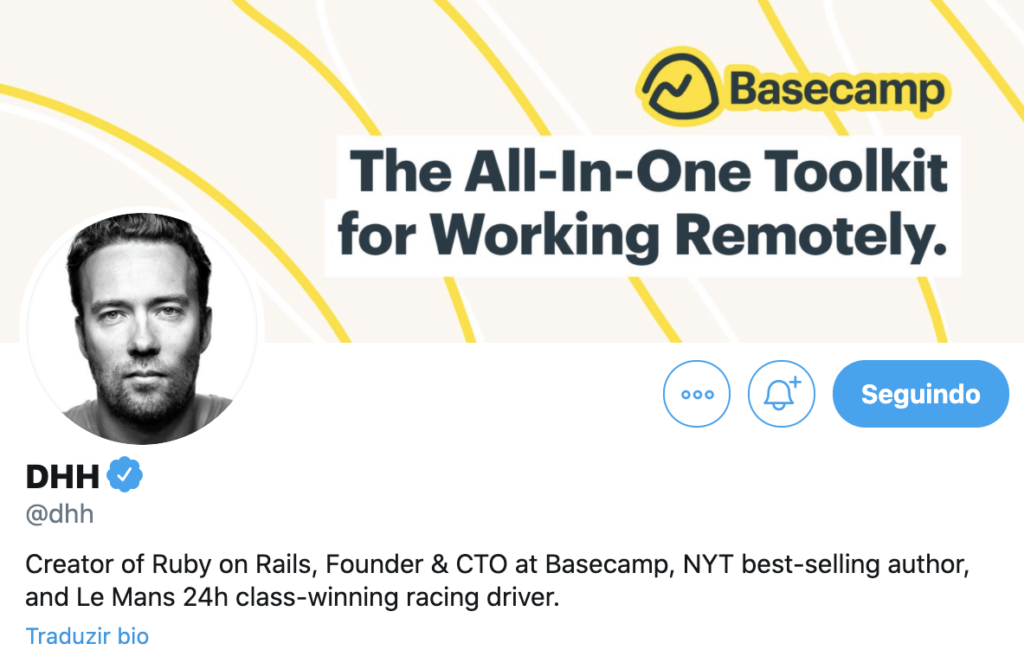When you are starting a business for the first time, you have absolutely no idea what you’re doing 110% of the time, especially if you are a one-man shop.
Every major decision is tremendously scary. No one prepares you for the stuff you need to do (and here I’m assuming you don’t have a business degree or an MBA): incorporating, filing taxes, hiring people, etc. And you usually don’t have the money to pay someone else to do those things for you.
We also spend hours thinking about the product we’re building and how our execution ought to be perfect. If you are a technical founder, this problem tends to be even worst since, in your perspective, the product is also a technical challenge. The tech stack, the tooling, it all needs to be exactly right.
The thing is, we worry so much about the formal and technical aspects of running a business that we often don’t pay enough attention to the main element responsible for keeping the doors open: a sustainable business model.
David Heinemeier Hansson – aka @dhh – was the one that helped me get that part of the equation right.
We’re building the next Facebook!
The first product I set to build with a group of friends 1 was an event platform called ZiiWay (yep, terrible name, I know).
The idea was to create a social network where people could create events and invite other people to those events (this happened a few months before Facebook added events into their platform, something that ultimately killed the project).
We knew exactly the tech stack we were going to use. We spent a good chunk of time deciding what was the best version control system available to us. However, if you ask me how many hours we spent on trying to come up with ways to monetize the product, I would probably say less than 1.
How are we planning to monetize it? Simple, we grow exponentially for a couple of years and when we reach the millions of users we start to run ads. Simple.
– My friends and I years ago
When you hear the story of people like Mark Zuckerberg starting Facebook in his college dorm, it’s easy to ignore the odds and think that creating something of that scale is something simple, or even something to strive for.
We’re bombarded with the huge success stories all the time but seldom hear about the failures. Worse, you either create the next Facebook, or the small, profitable business you created IS a failure. You either make it big, or you failed.
We were starting to see angel investing and VC money flooding the Brazilian market looking for opportunities. Bootstrapping was not a word in our vocabulary, and learning how to create an elevator pitch was way more important than formulating new ways of bringing money in early on.
That’s when we “met” David.
It all started with a video…
But first, who is this David guy and why should you care?

David is the creator of Ruby on Rails, the web-application framework used to build huge products known and loved by many, such as Shopify, for example. He’s also the co-founder and CTO of Basecamp, one of the best project management tools out there.
Despite his somewhat technical, David’s influence in the way I think about our company is most present on the operational side of things. We don’t use RoR in any of our products but apply concepts he and his co-founder at Basecamp, Jason Fried, developed every day.
Note: Ah, did I mentioned they are best-seller authors, writing amazing books on how to effectively work remotely, how to rethink your way to approach your company’s development, and how to create a calm work environment?
Anyways, everything you need to know about David’s approach to starting and growing a business can be found in this half-an-hour-long piece of 144p goodness right here (If you don’t have the time to watch it now, I strongly suggest that you save it for later):
I get that right now this doesn’t seem like a very radical idea anymore (hugely because of the work David and Jason have been doing for the past how many years), but it was a big deal in 2008.
Heck, it is still super relevant today.
- Start building, slap a price on it;
- If it’s any good and it solves a problem, people will sign-up;
- Use the funds you get from paying customers to re-invest, grow (not for the sake of growing);
- You don’t need to be the next Facebook to be successful. A small company building great things, with a great team, in a sustainable manner, should really be what you strive for.
I’m glad we’re slowly getting there, Thanks, David.
Notes
- One of these friends was the same one I mentioned in my previous post.
